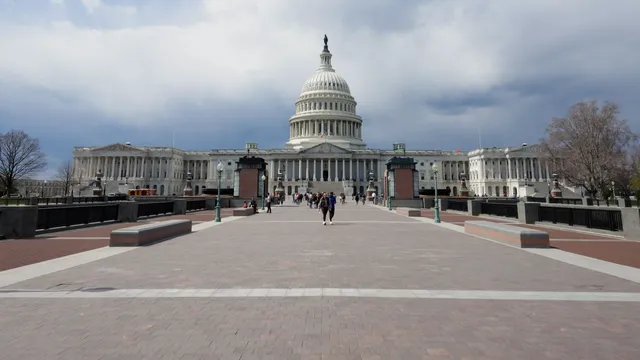
Lauren Boebert proposes renaming Washington D.C. to District of America
2025-03-27 20:30- During a legislative hearing, Lauren Boebert suggested that Washington D.C. could be renamed to the District of America.
- Her comments were made in the context of supporting President Trump's initiative to rename the Gulf of Mexico.
- Boebert urged her colleagues to take these discussions seriously, highlighting the implications of historical name changes.
Express your sentiment!
Insights
In the United States, during a legislative hearing on the Gulf of America Act, which supports an executive order made by former President Donald Trump, Congresswoman Lauren Boebert warned her colleagues against making jokes about the name change of the Gulf of Mexico to the Gulf of America. This remark was made during a session of the House Natural Resources Committee, where Boebert emphasized that Washington D.C. could potentially face a similar renaming fate as a result of Trump's decisions. Trump, shortly after taking office, changed the name of the Gulf of Mexico to the Gulf of America and reverted the name of Denali in Alaska back to Mount McKinley. Boebert's comments reflected her support for Trump's initiatives and aimed to convey the seriousness she believes should accompany any discussions about such name changes. Boebert's remarks followed her caution to members of the opposing political parties not to take these changes lightly, underscoring that historical precedents set by Trump's administration could lead to further name changes in significant locations. The suggestion to rename Washington D.C. to the District of America appears to have been a satirical warning regarding the political rhetoric surrounding geographical naming conventions. By invoking Trump's previous actions regarding the Gulf and Mount McKinley, Boebert sought to highlight how similar discussions could arise about the capital city if the public and lawmakers continued to engage in humor rather than serious debate. Notably, Trump’s changes, which include the Gulf of America and the reinstatement of Mount McKinley, generated controversy and discussions about cultural heritage and the historical significance of place names. Critics of Trump's actions have attacked what they see as an erasure or alteration of longstanding names tied to local identities and histories. At the same time, his supporters argue these changes represent a reclaiming of national pride and identity. The remarks made by Boebert at this hearing illuminate a broader conversation in American politics regarding identity, nationalism, and the implications of renaming established places. D.C., as the seat of American authority and power, holds a unique position in the national narrative, and any proposal regarding its name evokes strong feelings across the political spectrum. Moving forward, discussions about potential renaming would likely spawn further debates about national identity and place within the American historical context, especially as they relate to the movements for social justice and representation that have gained traction in recent years.
Contexts
Throughout American history, the significance of name changes has often mirrored broader cultural, social, and political transformations within society. Names hold immense power, serving as identifiers that can evoke a sense of heritage or instigate conversations about identity, belonging, and the struggles against oppression. The renaming of places, monuments, and institutions is frequently connected to changing societal values and perspectives. For instance, the move to rename places that were originally named after figures associated with slavery or colonialism reflects a growing awareness and reevaluation of historical narratives in contemporary society. These changes resonate with communities that have long faced systemic injustices, allowing for a reclamation of space that acknowledges their histories and contributions. The practice of renaming has not been limited to geographical locations; it extends to individuals and organizations as well. For example, educational institutions have increasingly sought to distance themselves from namesakes who may have perpetuated racist ideologies or actions. This trend reflects an effort to create more inclusive environments that honor diverse backgrounds and foster a sense of belonging among students and faculty. Name changes can serve as powerful tools for healing and reconciliation, allowing communities to confront historical injustices while paving the way for a more equitable future. The dialogue surrounding these changes encourages critical examination of identity and community values, giving rise to various viewpoints and sometimes contentious debates. The significance of name changes is also evident in the context of public advocacy and activism. Movements that seek to address social inequality and racial justice have utilized renaming efforts to bring awareness to systemic issues and advocate for transformative change. For example, the push to rename institutions associated with controversial figures highlights the intersection of history, memory, and accountability. These campaigns often rally community support, making them not just an act of changing a name but a collective call for action. This illustrates how name changes can embody larger movements for social justice, serving as markers of progress or regress within a society. In conclusion, the historical significance of name changes in the United States exemplifies a dynamic interaction between identity, memory, and activism. As communities grapple with their pasts, name changes emerge as a method of acknowledging historical grievances and fostering a sense of inclusivity in the present. The ongoing discussions surrounding renaming highlight the complexity of American identity, where names become symbols of change and progress. Ultimately, this process underscores the importance of recognizing and uplifting diverse narratives, as they play a crucial role in shaping a more just and equitable society.